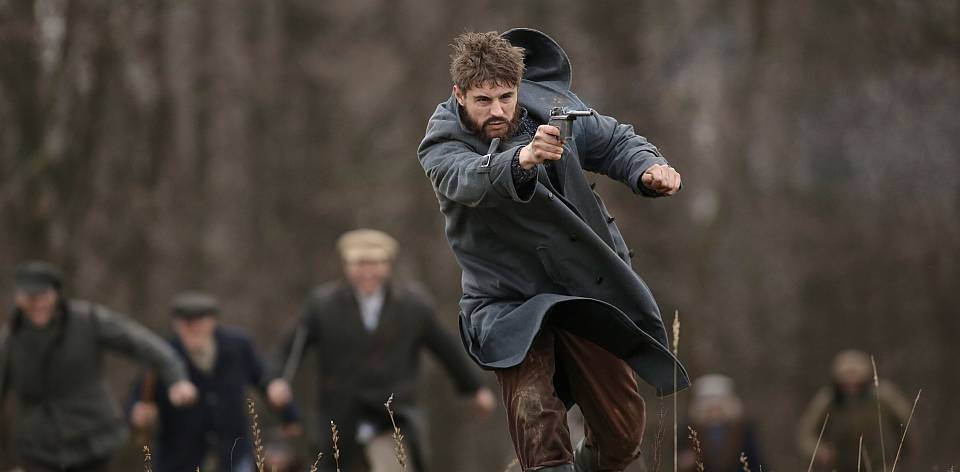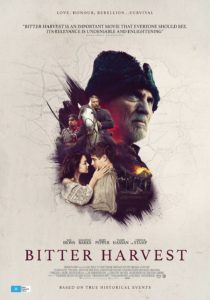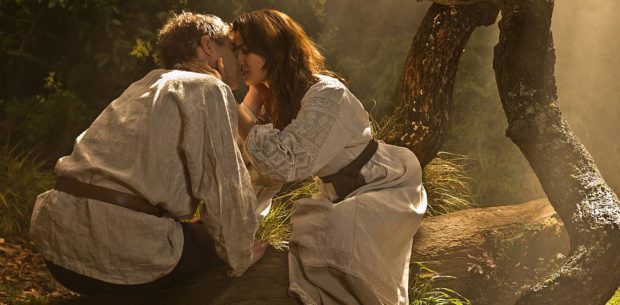Negative attitudes towards Russia have recently hit lows not seen since the height of the Cold War, and BITTER HARVEST won’t be doing them any favours. Even though it was shot almost three years ago, it feels for all the world like a reaction against the current regime. For while George Mendeluk’s film ostensibly depicts the real tragedy around Holodomor, a man-made famine targeting the Ukrainian people in the 1930s, it takes on the form of propaganda pictures of the most transparent kind.
Without even an attempt at impartiality, Mendeluk’s Ukraine is a fantasy inspired magical playground with young artist Yuri (Max Irons) and Natalka (Samantha Barks) cavorting in what can only be described as the forest from Ridley’s Scott’s Legend. Instead of the unicorns dying, Darkness comes in the form of Joseph Stalin (Gary Oliver). Yuri winds up in Soviet prison, and spends much of the film trying to escape and get back to his love.
Originally called The Devil’s Harvest, the title change is about the only sign of restraint on the filmmakers’ part. Mendeluk has been actively working in the film and television industry since the late 1970s, although BITTER HARVEST does not show any of that craft. At times it looks and feels like a parody, with its slow-motion and menacing Benjamin Wallfisch score present whenever a Soviet is on screen. Scenes are often disjointed, so that there isn’t so much a narrative as much as a series of thought bubbles.
Yet the high-impact photography, with its vibrant colours and crisp landscapes, is quite visually appealing at times. While many of the cast take a backseat to the love story, the notable casting of Terrence Stamp and Barry Pepper gives the picture a much bigger sense of gravitas. It’s unfortunate that lead Max Irons is wholly dispensable, barely making an impact when he is on-screen, and easily forgotten when he isn’t.
As we are told in a sombre coda, between 7 and 10 million people were killed as the result of the Soviet actions, something Russia finally acknowledged at the UN on the occasion of the 70th anniversary memorial. While BITTER HARVEST is a noble attempt at marking their memory, one that was also chronicled in Famine-33 (1991) and The Guide (2014), the net effect diminishes the struggle for the sake of the immediacy of a dramatic melodrama with heavy-handed politics.






